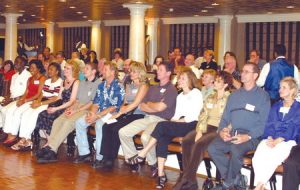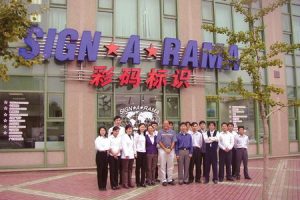Business Management
Small World?
In the international realm of sign franchises, large companies are providing the strength and support to make franchisees feel like a tight-knit community.
Published
17 years agoon
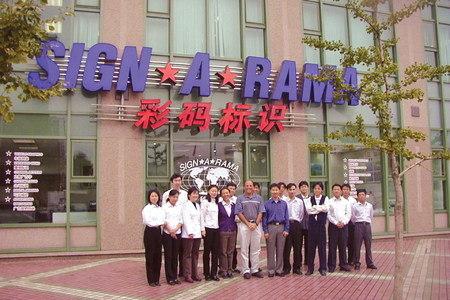
Why join a sign franchise instead of building an entirely new shop? Easy: Name recognition. Owners don’t have to spend years forging a good reputation; that status is included in the package. Of course, a franchise gives you much more.
The leading national – and international – franchises offer myriad support systems for franchisees. There’s training, hardware and software support, and, perhaps most crucial, marketing help. Going it alone remains admirable, but the right help can put owners on the fast track to success.
Training
Major U.S. sign franchises, like Sign*A*Rama (West Palm Beach, FL), Signs Now (Sarasota, FL) and FastSigns Intl. Inc. (Carrollton, TX) offer weeks of training, split between company headquarters and your shop. Same is true for Sign Biz! Inc. (Dana Point, CA), which isn’t a franchise, but a network of independent signshops that shares information and group discounts.
Sign*A*Rama, for example, brings new franchisees, whether they’re from North America or overseas, to meet with President Ray Titus at the headquarters.
Advertisement“We still run it like a small company,” said Tony Foley, president of World Franchisors, which aids the company with international development. (Both World Franchisors and Sign*A*Rama are sister companies within the United Franchise Group.)
Jim Tatem, of Sign*A*Rama’s Global Franchise Training Program, says franchisees attend two weeks at the “university” in West Palm Beach, learning pricing, the sales process, marketing strategies and business management. Then they spend up to one week training at a store in their city or country. Two weeks of training at their stores’ location follows.
Master licensors, which the company appoints outside the United States, Canada, United Kingdom and Australia, are primary franchisees who set up stores throughout their country. Sign*A*Rama scouts visit new countries to secure ideal flagship locations. “Seems like we’re opening in new countries weekly,” said Sharon Burman, brands marketing manager for Sign*A*Rama.
Sign Biz provides two weeks of home instruction, six days of training in the Sign Biz Technical Training Center in California, then four days of in-store training at a working Sign Biz store. Training at Sign Biz, however, involves more than the art of signage.
“It’s like getting a mini-MBA,” said President and CEO Teresa Young. She believes it’s important for members to know how to run a business, just as much, if not more, than knowing how to design lettering or operate a printer. “Their business as a CEO is not to make signs,” she pointed out. That’s why the home office assists new owners in hiring their first graphic artists, whom Young calls “the third leg of the stool.”
It’s also important, Young said, for newcomers to find their niche. Since Sign Biz is a non-franchised network, not a chain geared toward just one or two industry facets, its members differ. Some work with routing, others with sandblasting, others still with awards and engraving. Some members have become successful enough to acquire electric-sign companies. Sign Biz provides training so “if they want to go in a certain direction, they know what they’re getting into,” Young said.
Advertisement
Marketing
Perhaps marketing provides one of the biggest perks to joining a franchise. Many companies include websites and direct emailing in their sign-on packages.
Again, because Sign Biz isn’t a franchise, no standard package of logo-emblazoned stationery, flyers and business cards exists. Instead, Sign Biz offers all members graphic-design services, whether they’re startups or established businesses looking to rebrand. A team works with owners on logo development, Yellow Pages ads, websites and identity packages. Members can pick images from a graphics guide, as well as colors and font styles. “They don’t have know anything about (design),” Young says.
Or store owners can band together to create strong brand awareness. Stephen Stine, owner of a FastSigns in downtown Cincinnati, and the city’s seven other FastSigns owners have sponsored midday Reds baseball games for the last three years. Stine said advertising cooperatives are typically in large markets with plenty of marketing dollars.
Sign*A*Rama emphasizes online marketing, particularly pay-per-click advertising on search engines like Google. Pay-per-click ads pop up on pages in response to typed-in keywords. If someone types in “vinyl banners,” ads for signshops and suppliers that have paid for that keyword pop up. These ads are tracked to determine their effectiveness. Sign*A*Rama franchisees benefit from pay-per-click because they contribute to a national ad fund. Owners are also offered direct-mail packages, mailing lists and e-marketing at an additional price.
AdvertisementBurman consults with franchisees daily on case-by-case marketing opportunities. In one instance, an owner wanted to create free signs for a radio station, at a cost of $1,200. In return, the station would give him 10, 30-second commercials.
“When would they air?” Burman asked him. The owner couldn’t be sure. Midday? Midnight? “It would be better to use that money for a pay-per-click campaign,” she advised.
The startup includes a website and three company email addresses. “It’s customizable. They’re taught how to modify the site, add a local touch,” Tatem said.
Without revealing trade secrets, Dennis Ecklund, director of communications for Signs Now, said the company is investigating increasingly interactive, non-traditional marketing methods.
Connectivity
Besides providing a reliable brand-name recognition, franchises encourage fellow owners to share information. Companies are providing a plethora of ways to connect, and to share tips and tricks.
Signs Now features a franchisee-only website with chat rooms where owners can exchange ideas. In fact, Signs Now claims to be a pioneer, having adopted a website back in 1995. “We recognized early how important it was going to be,” said Ecklund. Franchisees also have online access to a library of operational forms, tutorials or custom forms for pricing jobs.
The online component also forges a sense of community. Beyond shop talk, members also wish each other happy birthday or congratulate new parents.
FastSigns’ Stine says online discussions are especially valuable. “Every owner can freely avail themselves of every other owner,” he said. There’s a mentoring program, as well as owner meetings held at least twice a year. FastSigns conventions highlight vendors used for various subcontracting purposes.
For Young, the Sign Biz national conventions feels sufficiently family-like to be called a “reunion.” Sign Biz often piggybacks these conventions of off tradeshows, so new members can walk the floor with mentors without being overwhelmed.
Sign Biz also bases “reunion” workshops around its members’ niches.
Trends
Every signshop encounters trends. How they address them makes each franchise unique. Signs Now anticipates UV-curable flatbed printers as the primary printer for many shops in two to three years, said Lee Manevitch, Signs Now’s technical support manager. Right now, however, he believes solvent printers are the sign business’ bread-and-butter. “At this point there’s nothing revolutionary being developed; solvent printers are becoming faster, cheaper and bigger, but they’re not becoming obsolete,” Manevitch said.
In deference to flat screens, Sign Biz has created a new division, LobbyPOP, which sells 42-in. plasma-screen systems with customizable content. All Sign Biz members are authorized dealers.
Jim Hunt, director, technical services for FastSigns, said all FastSigns centers now open with a wide-format digital printer – either solvent, eco-solvent or flatbed. UV technology is also gaining popularity because it can create rigid signage with less materials and manpower costs.

SPONSORED VIDEO
Introducing the Sign Industry Podcast
The Sign Industry Podcast is a platform for every sign person out there — from the old-timers who bent neon and hand-lettered boats to those venturing into new technologies — we want to get their stories out for everyone to hear. Come join us and listen to stories, learn tricks or techniques, and get insights of what’s to come. We are the world’s second oldest profession. The folks who started the world’s oldest profession needed a sign.
You may like

PRINTING United Alliance Forms Strategic Partnership with ASI

The Joy of Working

5 Signs That Embody Care and Gratitude
Subscribe

Bulletins
Get the most important news and business ideas from Signs of the Times magazine's news bulletin.
Most Popular
-
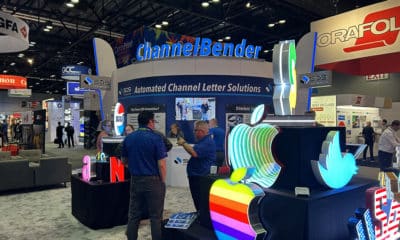
 Photo Gallery1 week ago
Photo Gallery1 week ago30 Snapshots of the 2024 ISA Sign Expo
-

 Ask Signs of the Times1 week ago
Ask Signs of the Times1 week agoWhy Are Signs from Canva so Overloaded and Similar?
-

 Paula Fargo6 days ago
Paula Fargo6 days ago5 Reasons to Sell a Sign Company Plus 6 Options
-

 Real Deal3 days ago
Real Deal3 days agoA Woman Sign Company Owner Confronts a Sexist Wholesaler
-
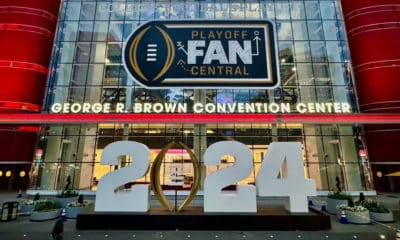
 Benchmarks2 weeks ago
Benchmarks2 weeks ago6 Sports Venue Signs Deserving a Standing Ovation
-

 Photo Gallery6 days ago
Photo Gallery6 days ago21 Larry Albright Plasma Globes, Crackle Tubes and More
-

 Women in Signs1 week ago
Women in Signs1 week ago2024 Women in Signs: Brandi Pulliam Blanton
-

 Women in Signs1 week ago
Women in Signs1 week ago2024 Women in Signs: Alicia Brothers
